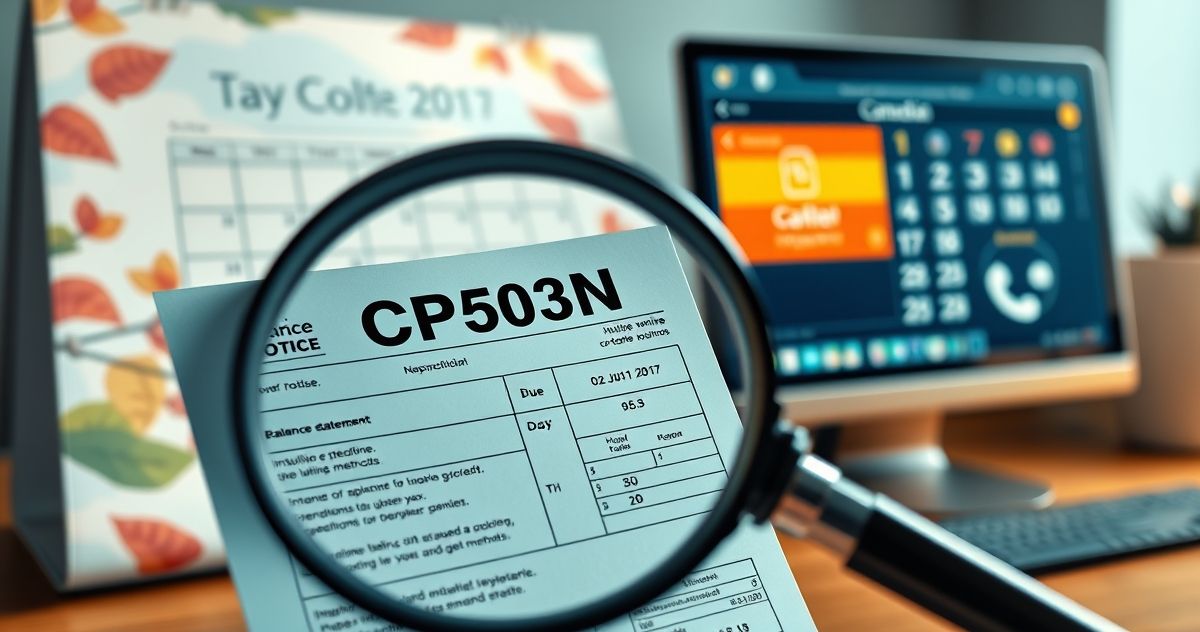Understanding the CP503N Reminder Notice
The CP503N Reminder is a critical notice sent by the United States Internal Revenue Service (IRS) to inform taxpayers about their outstanding tax liabilities. It serves as an urgent reminder for taxpayers who have failed to pay their taxes after receiving initial notice, emphasizing the need for immediate resolution to avoid escalating penalties and enforcement actions. In-depth understanding of this notice is essential for maintaining compliance and preventing further financial consequences.
Purpose of the CP503N Notice
The primary purpose of the CP503N Reminder is to notify taxpayers of their outstanding balances and urge them to take prompt action. Sent out after the initial CP501 notice, the CP503N specifically highlights the necessity to clear delinquent taxes before the IRS resorts to more severe collection procedures. By doing so, the IRS aims to take a proactive approach in resolving unpaid tax issues, serving the interests of both the taxpayer and the agency.
Key Features of the CP503N Reminder
The CP503N consists of vital components that aim to inform and facilitate taxpayer compliance:
- Clear Balance Statement: The notice provides a detailed account of the unpaid tax balance, including any accruing interest and penalties. This transparency is crucial for taxpayers to understand their current financial obligations.
- Due Date Reminder: It reiterates the due date for the payment, highlighting the urgency required to avert additional charges. Taxpayers are reminded of previous notifications to underscore the gravity of their situation.
- Payment Instructions: The CP503N includes comprehensive payment instructions, offering taxpayers guidance on various methods available for settling their debts, such as online payments, checks, or money orders.
- Contact Information: The notice provides contact details for the taxpayer to reach out for assistance or seek clarification regarding the outstanding amounts and payment options.
Filing and Compliance Requirements
Taxpayers must adhere to specific compliance measures upon receiving a CP503N notice:
- Timely Response: Prompt response is essential to avoid further charges. Taxpayers are encouraged to immediately address the notice by paying the mentioned amount, contacting the IRS for assistance, or arranging for payment plans if necessary.
- Verification of Information: Ensuring that all details on the notice are accurate is critical. If discrepancies are found, taxpayers should promptly reach out to the IRS for clarification or correction.
- Documentation: Maintaining records of all correspondence with the IRS, including notices received and payments made, is vital for future reference and audit purposes.
Penalties and Consequences of Non-Compliance
Failure to act on a CP503N notice can lead to significant penalties and legal actions:
- Accrued Interest and Penalties: Continued non-payment results in increasing interest rates and penalties being charged on the outstanding balance, compounding the taxpayer’s financial burden.
- Enforcement Actions: Ignoring the CP503N notice can lead to severe measures such as tax liens, levies on assets, or wage garnishments, which can severely impact the taxpayer’s financial standing.
- Increased Legal Scrutiny: Persistent non-compliance may trigger audits or investigations by the IRS, leading to more significant legal and financial issues.
Importance in Tax and Financial Compliance
The CP503N Reminder plays a pivotal role in encouraging tax compliance and financial transparency:
- Proactive Financial Management: By addressing tax liabilities promptly, taxpayers can prevent future debt accumulation and maintain a manageable financial standing.
- Clearance of Tax Obligations: Resolving outstanding balances as highlighted in the CP503N aids in clearing tax obstacles, ensuring taxpayers remain in good standing with the IRS.
- Access to Payment Options: The reminder serves as an opportunity for taxpayers to explore suitable payment or installment plans with the IRS, assisting those facing financial constraints in meeting their obligations.
- Avoidance of Enforcement: Early action upon receiving the CP503N can preempt more aggressive collection efforts, allowing taxpayers to manage tax issues amicably.
In conclusion, the CP503N Reminder is an essential tool for both the IRS and taxpayers. It serves as a critical communication mechanism alerting taxpayers to address pending tax issues proactively. Understanding its components, adhering to compliance requirements, and taking timely action are paramount for preventing escalation and ensuring financial health.

